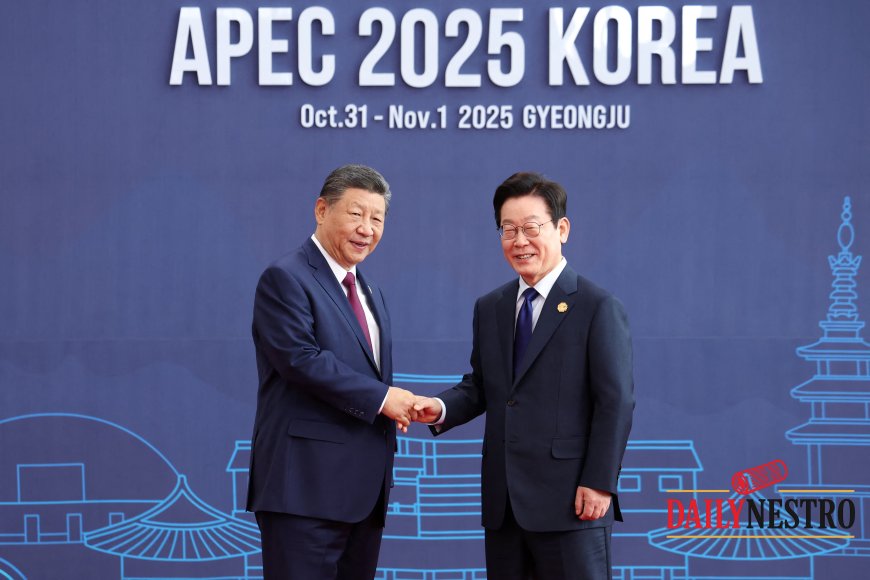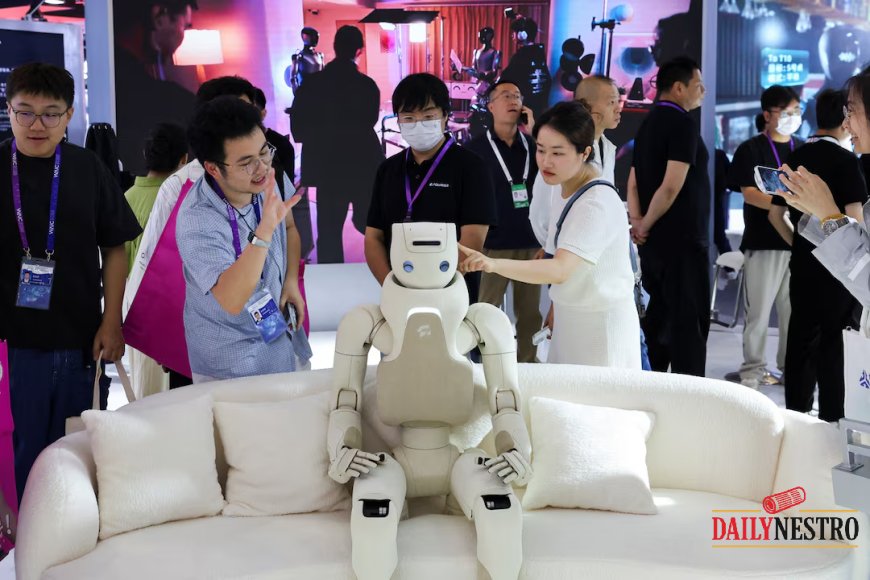China's AI Power Play: A New Global Rulebook
At APEC 2026, Xi Jinping proposed a global AI governance body, sparking debate on ethics, power, and policy. Explore how China’s move could reshape innovation, business, and Africa’s digital future.

When Beijing discusses technology, the world remains silent. This time, the message hitting the wires is unmistakable: Artificial Intelligence needs global governance, and China is demanding the head seat at the table.
It all went down at the APEC 2026 Summit in Gyeongju, South Korea. President Xi Jinping dropped a political bombshell by proposing a new body: the “World Artificial Intelligence Cooperation Organization” (WAICO). His vision? As he put it, to “ensure AI serves as a public good for all humanity, not a weapon for a few.”
The room’s reaction was a clear geopolitical map: immediate, loud applause from Asian and African delegates; a diplomatic "let's see" from Europe; and palpable, stone-faced hesitation from the United States.
The Fine Print: What is WAICO
According to reports leaking out of Reuters and the South China Morning Post (dated November 1, 2026), the plan is ambitious. The proposal would plant the headquarters in Beijing, feature a rotating leadership among member states, and be tasked with four key pillars:
• Setting the Rules: Drafting global ethical and safety standards for AI development.
• Sharing the Code: Promoting open-source innovation and knowledge transfer across borders.
• Managing the Data: Creating a universal framework for cross-border data governance.
• Closing the Gap: Funneling support for AI training and research into developing economies.
Xi painted the move as a “necessary response to uncoordinated AI expansion that risks inequality and misinformation.” But let's be real: beneath the soaring rhetoric of "public good" is a clear, calculated strategy. China is trying to write the rules of the road for global AI before Washington can finalize its own.

The AI Cold War Gets a Re-Up
Commerce Secretary Gina Raimondo, leading the U.S. delegation, didn't slam the door on the idea, but her emphasis on “trust, transparency, and democratic accountability” was a diplomatic raised eyebrow.
This is the latest, highest-stakes round in the AI arms race. The U.S. just launched its own AI Safety Institute, and the EU’s sweeping AI Act is slated to become law in early 2027.
"We’re watching a geopolitical chess match for who sets the algorithms that will govern global trade, labor, and communication," observes Dr. Ben Feldman from the Oxford Institute for Digital Governance.
This rivalry isn’t just about faster chips. The country that pens the global AI rulebook will fundamentally decide who accesses data, where capital flows, and which economies truly profit from automation.
Africa’s Corner: Opportunity or Oversight
For the African continent, and Nigeria especially, this whole debate is far from abstract theory.
AI is already transforming lives, powering leaps in financial inclusion, precision agriculture, and health-tech innovation. Here's the kicker: most African nations are dependent on algorithms imported from the U.S. or China, models often trained on distant data that simply don’t grasp local realities.
The director of the Lagos Institute of AI and Society, Dr. Ngozi Adeleke, succinctly expressed the continent's anxiety when he said, "Africa has to be at the table, not on the menu."
China’s WAICO promise of shared research funds and tech transfer could be a lifeline to close the technolgical divide. Critics are raising concerns about digital dependency, though. If Beijing develops AI standards, will African countries unintentionally inherit laws that favor Chinese platforms and, more importantly, surveillance practices? On the flip side, U.S./EU frameworks might prioritize privacy but choke off the data access crucial for small-scale, local innovation.
Africa must, ultimately, forge its own hybrid path: leveraging global partnerships without ceding digital sovereignty.
The Numbers Powering the Fight
The underlying data explains the urgency of the moment:
Global AI market value (2026): $480 billion (Statista)
China’s AI investment 2025–26: $62 billion (+18% YoY)
U.S. AI investment 2025–26: $72 billion (+11% YoY)
Projected global AI workforce impact: 97 million new roles, 85 million displaced (World Economic Forum)
These aren't just statistics; they are proof that AI is the definitive engine of modern economic competition. If WAICO takes off, it wouldn't just be an organization; it would formalize China’s soft-power leadership, much like the Belt and Road Initiative did for global infrastructure.
What's the Corporate Headache
For any company that operates internationally, a major split is forming. We may soon live in a dual-standard world: one AI ecosystem guided by Western data ethics and democratic accountability, the other shaped by Chinese state-led pragmatism.
Businesses navigating this future will need to master:
• Navigating increasingly divergent AI compliance laws.
• Adhering to strict regional data-sovereignty rules.
• Managing supply-chain shifts toward AI-regulated technologies.
Tech investors need to watch AI governance alliances with the same scrutiny they give to interest-rate decisions, because future market access will hinge on whose AI rules you decide to follow. For Nigerian startups, this is a clear-cut mission: build “trust-by-design” systems that are transparent, explainable, and culturally relevant before foreign policies box in local innovation.
The Road Ahead: Diplomacy is the New Innovation
As AI solidifies its role as the core of economic and military strength, governance itself is transforming into a diplomatic currency.
The next two years will be pivotal: we could see the U.N. step into the AI rule-setting ring, distinct tech blocs forming (one Western-centric, one China-aligned), and developing economies choosing sides based on which offers the better funding or digital infrastructure.
The essential question is no longer if AI will reshape global order; it’s who gets to define what the phrase “ethical AI” actually means.
As Dailynestro Analysis concludes, “History shows that those who set the standards control the trade.”
If WAICO truly materializes, 2026 will be remembered as the year AI governance went global but fractured. The risk is a world split into competing digital ecosystems, mirroring how the internet itself is divided between Western openness and China’s firewalls. The biggest opportunity for nations like Nigeria is to become the critical bridge: building talent, contributing to the global ethics debate, and ensuring the future of AI uplifts, not exploits, emerging economies.
Sources







